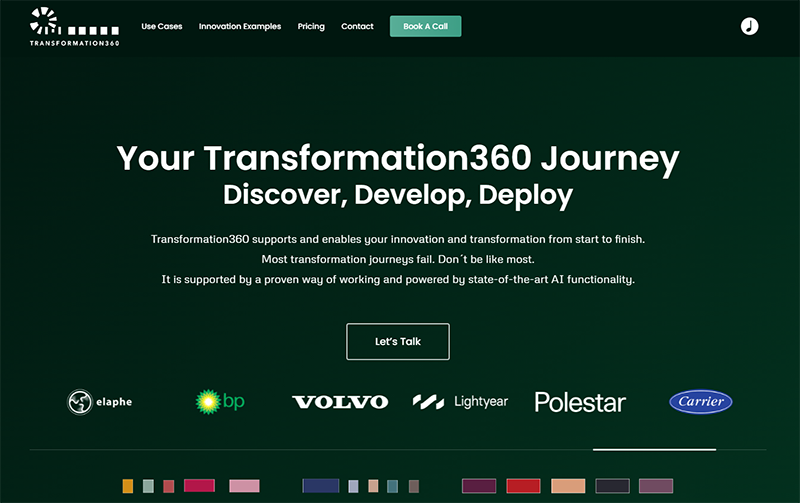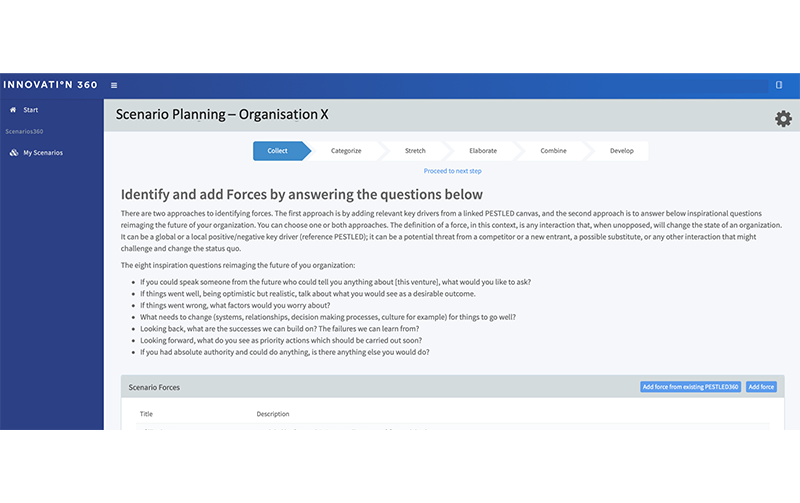What is innovation management certification?
First, let’s define innovation. Innovation is commonly defined as the “carrying out of new combinations” that include products, services, business models, processes, and organizations. It can be incremental innovation, evolving in small steps, or radical innovation, disruptively redrawing the market or reimagining a concept. This process can be managed and an organization trained in its practice.

The ISO 56000 Standard and Certification for Innovation Management Certification
There are several tools and methods on the market for practicing innovation, and a recent ISO standard, ISO 56000. For the time being, ISO 56002 is what we call a guiding standard, meaning it is not possible to be certified in it: if someone claims to be ISO 56002-certified, that it is incorrect and against ISO practices. The ISO committee is working on a requirement standard, ISO 56001, which will be launched around 2025, and then it will be possible to become ISO-certified.
There is individual certification as well accreditations for Innovation Management. Let’s start with certifications which are typically individual-oriented around skill sets applied within an organization. You can earn the Certificate Applied Innovation Leader as an individual to demonstrate your knowledge, gain insights, best practices, testing out tools, and develop in any role that deals with innovation, R&D, transformation, digitalization, change, development, project leadership and program management.
The second alternative is accreditation, which is for consultants and faculties indicating that they are working according to the best practice based on tested experience and reliable scientific methods. If you are interested and or work as a consultant you can apply for the Innovaiton360 Innovation Accreditation Program, one of the most well-known accreditors of innovation management.
A deep dive into ISO 56000
Over the next few years, the ISO will publish a series of standards in innovation management under ISO 56000, which will set a baseline for innovation as a science in the professional world. Just as the ISO 9000 established international standards on quality management and quality assurance, these new ISO 56000 standards will delineate the definitions, tools, frameworks, and methodologies for quality in innovation management.
International standards in structured innovation reached a critical milestone in February 2019, when the ISO published its first two guidance documents, ISO 56003:2019 on innovation management tools and methods for innovation partnerships, and ISO 56004:2019 on innovation management assessment. In July of 2019, the third guidance document was published in ISO 56002, covering innovation management systems. Now ISO 56004, which outlines how to carry out an innovation management assessment (IMA), has been launched. Another upcoming guideline, ISO 56003, will address ways startups can collaborate with larger organizations and set up and manage innovation partnerships.
The ISO recognized one of the biggest challenges facing the working team in their article, “Innovation and Standards – A Contradiction?” It asks, How do you standardize the creation of radically new concepts and patterns of thought? The answer is that standards do not impede creative ideation, but lay down some best practices and create a shared collaborative language. Ideation is one aspect of innovation, arguably not even the most valuable. Rather, it is the process of testing ideas for their validity, measuring their impact in the market, and executing the ideas systematically that brings true innovation to life. As climate change, resource scarcity, and growing populations make the need for innovation more urgent, we cannot waste time and talent pursuing unproven and untested initiatives. Innovation management will eliminate a great deal of these wasted resources, while maximizing and extending the value of the initiatives we do pursue. The global nature of innovation mandates a set of standards and measures that will allow innovators to collaborate across national and cultural lines to solve big problems like the development of a sustainable energy ecosystem to power our world and for the development of innovation clusters that transform entire industries, regions, and systems to work better and more efficiently.
Today there are a few tools on the market for testing your readiness to practice innovation management; one of them is the Innovation 360 ISO 56000 Readiness test which also is included in Innovaton360s all programs.
The Innovation Management Certification Program by Innovation 360
Why become certified or accredited? Well, that is a good question. Innovation management is the backbone of transformation, digitalization, and sustainability, and there is an increasing need for professionals who have the skills and credentials to help organizations create a culture and discipline of innovation. Innovation management is a science, not serendipity. As a matter of fact, it is a 100-year-old science. Innovation 360 studied all the peer-reviewed material from that period, and with this material built and published a framework used by Georgetown, Parsons New School, Copenhagen Business School, and many others. That framework that also supported the development of the ISO 56000 standard for innovation management. Like ISO, you might be wondering if it’s really possible to standardize? Yes, it is. Concepts, terminology, and ways of working are universal and have been for decades. We have distilled all this knowledge into the core of all our programs.





